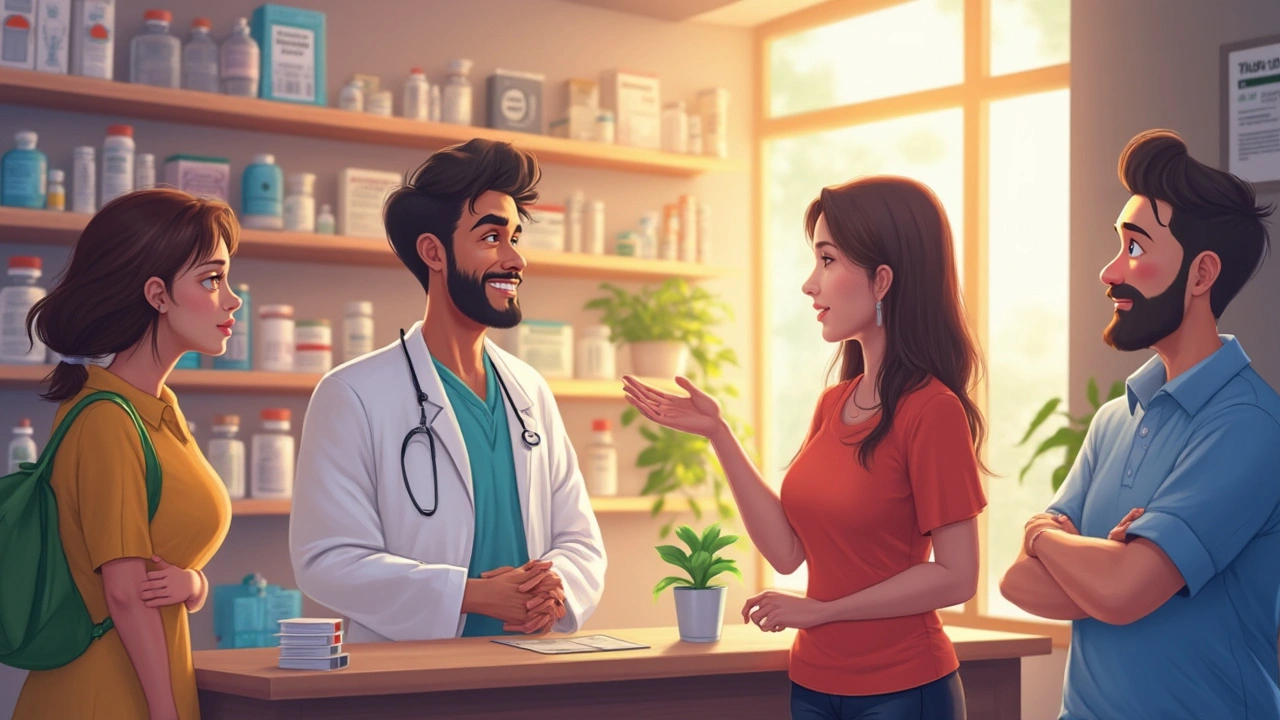Herpes Treatment: What Works Right Now
If you’ve ever gotten a cold sore or a genital sore, you know how annoying a flare‑up can be. The good news? There are clear steps you can take to shrink the sore faster, lessen the pain, and cut down how often it returns.
First, act at the first sign – that tingling or itching feeling. Catching the virus early is the biggest factor in keeping the outbreak short. Most people wait until the sore pops up, but applying a treatment while that warning sign is still there can cut the healing time by half.
Over‑the‑counter fixes you can start today
OTC creams and ointments are the go‑to for many. Look for products that contain docosanol (like Abreva) or benzyl acrylate cinnamate. Apply a thin layer five times a day as soon as you feel the prodrome. These ingredients block the virus from entering healthy cells, so the sore doesn’t get bigger.
For cold sores, a lip balm with sunscreen (SPF 15 or higher) can stop UV light from triggering a new episode. If you’re prone to genital outbreaks, keep a small pack of the cream in your bag so you don’t have to scramble for it later.
Don’t forget pain relief. Ibuprofen or acetaminophen can ease the throbbing, and a cool, damp cloth pressed to the sore for a few minutes brings instant comfort.
Prescription antivirals – the heavy hitters
When OTC stuff isn’t enough, doctors prescribe antivirals like aciclovir, valaciclovir, or famciclovir. These drugs stop the virus from replicating, which means faster healing and fewer future flare‑ups.
Typical dosing for a cold sore is valaciclovir 2 g once, taken at the first sign of tingling. For genital herpes, many doctors recommend an episodic dose: aciclovir 400 mg three times a day for five days, started as soon as symptoms appear. If you have frequent outbreaks (more than four a year), a daily suppressive dose (e.g., valaciclovir 500 mg once daily) can keep the virus quiet most of the time.
Side effects are usually mild – maybe a headache or a bit of nausea. If you notice a rash or kidney trouble, call your doctor right away.
Getting a prescription is easier than you think. Some tele‑health services let you talk to a clinician online, get a diagnosis, and have the meds shipped to your door.
Beyond meds, lifestyle tweaks make a big difference. Manage stress with short walks, meditation, or hobbies you enjoy; stress is a top trigger for outbreaks. Eat a balanced diet rich in lysine (found in fish, chicken, and beans) and keep arginine‑rich foods like chocolate and nuts moderate, because arginine can help the virus thrive.
Stay hydrated, get enough sleep, and avoid smoking – all of these help your immune system keep the virus in check. If you’re sexually active, use condoms even when no sore is visible, and tell partners about your condition so they can make informed choices.
Remember, herpes is common; most adults will contract it at some point. Treating it isn’t about a one‑time fix, but about a toolbox of options you can pull from whenever you need relief.
Keep this guide handy, act fast at the first tingle, and you’ll find that outbreaks become less painful and less frequent. Your body knows how to manage the virus – you just need to give it the right support.

